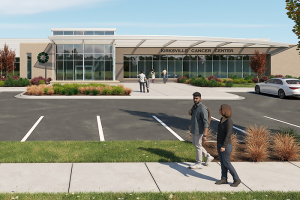Celebrating our 50th annual conference
In 1963, the country was in turmoil. Tensions over civil rights and the Cold War had the country on edge, and President John F. Kennedy was assassinated. Now, 50 years later, those times seem long past to most people.
But for the health care engineering community, many of the same issues discussed when ASHE was first formed in the 1960s are still relevant today. For example, hospital engineers have always worked to improve themselves and stay on top of the latest trends.
After a 1967 ASHE annual meeting — then called the American Society for Hospital Engineers — President Robert C. Paul wrote in a column that hospital engineers were seeking to gain more professional status. There are several ways to do this now, including earning the Certified Healthcare Facilities Manager designation or earning FASHE or SASHE status. But in 1967, Paul noted that hospital engineers needed to gain supervisory ability by "constantly studying and learning about these areas and by being informed, so that, when the opportunity does arise, we can prove that we are capable of assuming responsibility. The more we upgrade ourselves, the more valuable we become to our administrators."
ASHE will celebrate its 50th annual conference in Atlanta July 21-24, 2013, marking a milestone for an annual event that has always helped facility engineers "upgrade" themselves. These conferences are a great way for engineers and others involved with the health care physical environment to come together to share success stories, learn about the most recent developments and ensure their value to the health care industry.
ASHE's newsletters from decades past make it clear that conferences often include the same general discussion topics, including cost-containment, code compliance and technology. For example, the theme of the 1976 annual conference was "Keeping Ahead of the Technology Explosion." That's an important goal for ASHE members today, but in the 1970s the technology discussions centered on mechanized paging and common-carrier telephone systems rather than current topics like wireless medical telemetry devices.
While the general goal of our members remains the same — optimizing the health care physical environment — our industry is changing rapidly and the need for continual education is critical. The annual conference provides a way to get that education while networking with peers.
Sessions at the 2013 annual conference will be organized into several areas: compliance strategies; operational efficiency; wringing out waste; planning, design and construction for the facility manager; leadership; and the fundamentals of health care facility management.
ASHE is accepting abstracts for conference presentations. Help ASHE celebrate its 50th annual conference by joining the roster of prestigious presenters. For more, visit www.ashe.org.
By Deanna Martin, senior communications specialist for ASHE.
INSIGHT
ASHE releases new monographs on important facility issues
ASHE recently published three new monographs on topics important to health care facilities professionals: managing hospital electrical shutdowns, the physical environment provisions of pharmaceutical compounding, and medical gas cylinder and bulk tank storage. The monographs are available to download for free by ASHE members, but nonmembers can purchase the monographs at the ASHE store at www.ashestore.com. (Members can order print copies of the monographs at a discounted rate.)
ASHE urges membersto comment on Guidelines
The Facility Guidelines Institute (FGI) is accepting public comments for the nationally accepted Guidelines for Design and Construction of Health Care Facilities, which outlines minimum recommendations for health facility new construction and renovation. Among the changes proposed for the 2014 edition of the Guidelines are several new risk assessments, updated commissioning guidance, staff nap rooms in hospitals and medication safety zones. The public comment period for the FGI Guidelines runs through Nov. 22 and ASHE is urging its members to take part. For more information, visit the FGI website at www.fgiguidelines.org.




